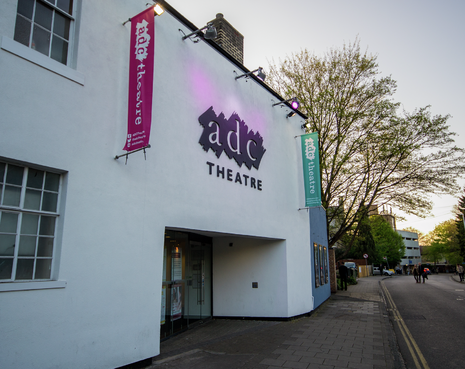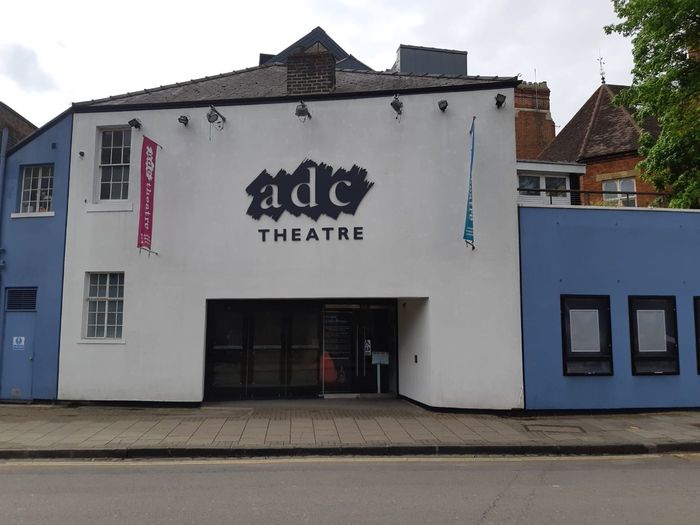An Open Letter to Cambridge Theatre
Saying goodbye to Cambridge Theatre, Anna Trowby implores students to fully address the ‘strident racist attitudes’ which made her feel invisible

Upon arriving in Cambridge as a naive fresher who had yet to lose her rose-tinted view of the world, I was looking forward to joining the theatre scene. With successful graduates such as Olivia Colman, Stephen Fry and Emma Thompson having made their name in amateur productions before becoming famous, I was excited to contribute to student theatre in my own way. This personal mission was all the more important to me given that I had been encouraged to pursue acting in Cambridge by my foster mother during a particularly turbulent period of my life.
For the most part, I am grateful for my experiences in Cambridge theatre. I have met many close friends through acting in various productions, and I have been fortunate enough to appear in a brilliant play at the Edinburgh Fringe with a group of people that forever changed my perspective on art and culture. I would not trade the late-night get-outs and coffee shop meet ups for anything else in the world, and these experiences in the theatre scene have been essential to how I have developed as a person over the last three years.
However, for all of these great experiences, I have encountered barriers that I believe are emblematic of the strident racist attitudes that are rampant in Cambridge theatre. Although BIPOC performers have been vocal for quite some time about the inequities that exist in student theatre, we continue to be disregarded by productions that would rather put on the pretence of diversity than make real efforts at inclusive casting. Now that I am graduating this year, I feel compelled to look back at my theatre journey and wonder if it would have been different had I been given the same treatment and recognition as my white peers. Don’t get me wrong – there are many well-regarded BIPOC performers in Cambridge, and this open letter does not mean to detract from their success in any way. But it must be said that BIPOC creators and performers are afforded less opportunities and plaudits than their white peers, even if they are as equally (or more) talented than them.
“[W]e continue to be disregarded by productions that would rather put on the pretence of diversity than make real efforts at inclusive casting.”
Ever since the backlash to the Marlowe Showcase cast reveal last term, there has been growing awareness of racism in theatre and the preferential treatment of white actors over ethnic minority actors. Unfortunately, a lot of individuals and productions seem to be oblivious to the criticisms raised in the wake of this controversy and have done little to implement any changes that would result in more diverse casting. As Sara Hazemi noted in her article recently, only two BIPOC actors have been cast in the prestigious Shakespeare Michaelmas shows in the last three years, and the original 2021 Marlowe Showcase did not feature any BIPOC performers. It’s also important to note the absence of BIPOC people in more classical theatre productions, whether it is Shakespeare or Greek Tragedy, and the fact that all-white casts are often accepted without question. Whilst there has been an uptick in shows that centre BIPOC characters and voices, white producers and directors seem not to be able to see BIPOC actors as being ‘suitable’ for more traditional productions, further pushing BIPOC to the margins of theatre.
It is not easy to trace the cause of these issues and why it is that productions do not often feature BIPOC actors, but I strongly believe that attitudinal prejudices persist despite our efforts to be seen. I have seen this in my own experiences of theatre: despite having appeared in over 40 shows during my time in Cambridge, my name is less well-regarded than those of white performers who have appeared in half the shows I have done. I have acted in a variety of productions, ranging from stand-up to postmodern drama to Shakespeare, and I have also written four full-length plays, including the fantasy radio drama Lacuna Ridge (this genre is particularly well known for being a white-dominated space). Despite this, I know of less experienced white writers and directors whose works receive more recognition and reviews than any of my plays. (None of the plays I have been involved with as a writer, director or producer have ever received a review from a student newspaper, despite my best efforts.) I do not necessarily feel actively discriminated against. Rather, I feel that I have been involuntarily committed to invisibility because people cannot see past my race.
There have also been overt displays of racism where people in theatre have made their prejudices and biases clear to me. Namely, I have been pressured by people to whitewash roles written in mind for BIPOC characters. I have also been cast as the ‘angry’ or ‘aggressive’ Asian woman by white actors/production team members for having a brash style of comedy (I have never seen a man, or a white person, being called aggressive or angry for doing the same type of comedy I do) and it often leaves me powerless to react in anyway but silence. I also frequently find myself to be one of the few BIPOC actors who audition for large productions. While I am not directly discriminated against in casting decisions, I always find it telling that these productions don’t feel the need to advertise opportunities to the BIPOC theatre group.
“I feel that I have been involuntarily committed to invisibility because people cannot see past my race.”
This overall mistreatment and lack of recognition for my work hurts more knowing that I have a massive output AND put my heart and soul into every play I perform or create, only to be dismissed by my peers. It is genuinely disheartening to find out that even after I have appeared in or been involved with over 50 productions in my three years here, my name will not get as much recognition as some of the white people we see as being the ‘crème de la crème’ of Cambridge theatre. I used to think that, with enough time and effort, I would eventually get the recognition and respect from my white peers that I had worked so hard to gain. Unfortunately, this did not happen. I cannot guarantee this, but I strongly feel that, were I white, my name would be more well-known by people in Cambridge theatre. It is because of this that I ask people involved in student theatre to do better: to recognise the people around you, especially those who occupy marginal spaces, and to give others’ due credit in a way that you would want for yourselves. Stop making BIPOC creators carry the burdens of your inaction and ignorance and start appreciating our talents and involving us more in theatre.
Of course, this discrimination is not something that can be traced to a single individual, and it does not demean the talents of white dramatists who have no control over their reputation. However, it does prompt me to ask people involved in theatre to do a little soul searching and ask themselves what they really value in these individuals and productions. If it is really talent that they value, or an elite culture where only people of a certain race or background (read: white and upper class) can become prestigious in the scene. I have refrained from naming many productions or individuals in this piece, but if you do recognise yourself in what I have described, you might want to think about how you can better yourself so that these injustices do not happen in the future.
Yours faithfully,
Anna Trowby
 News / Uni Scout and Guide Club affirms trans inclusion 12 December 2025
News / Uni Scout and Guide Club affirms trans inclusion 12 December 2025 News / Cambridge Vet School gets lifeline year to stay accredited28 November 2025
News / Cambridge Vet School gets lifeline year to stay accredited28 November 2025 News / Cambridge study finds students learn better with notes than AI13 December 2025
News / Cambridge study finds students learn better with notes than AI13 December 2025 Science / Did your ex trip on King’s Parade? The science behind the ‘ick’12 December 2025
Science / Did your ex trip on King’s Parade? The science behind the ‘ick’12 December 2025 News / Pembroke to convert listed office building into accom9 December 2025
News / Pembroke to convert listed office building into accom9 December 2025








